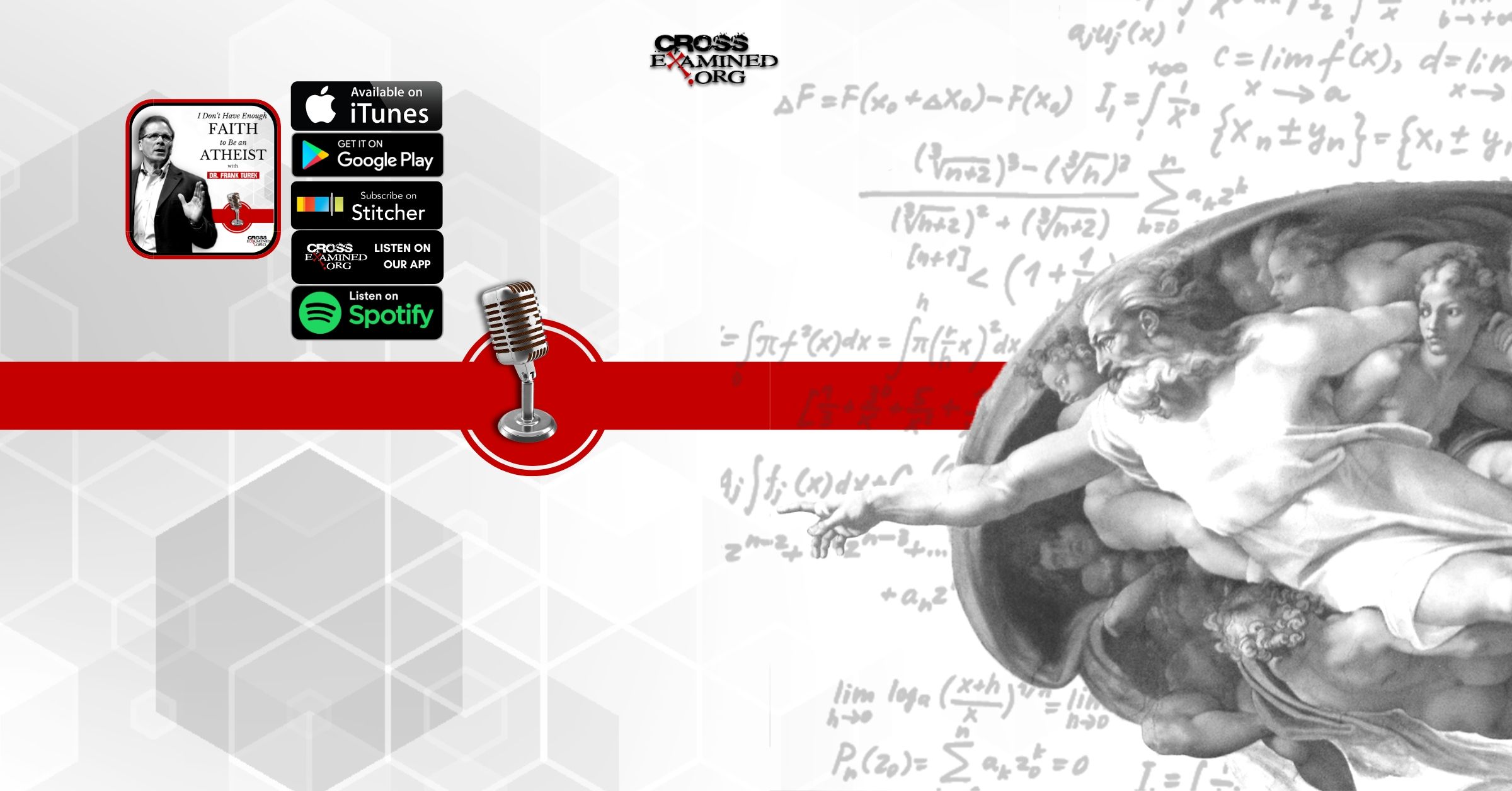By Alex McElroy
The only foundation upon which one should build their life is the truth. The truth should be sound, logical, and justifiable. Most, if not all, people would agree with that sentiment. However, the factors that one uses to determine what is true and what role truth ultimately plays in one’s life are where worldviews tend to diverge. Therefore, it is necessary for each individual to build or understand the epistemic structures that are reliable guides on how to determine what is true about the world around them.
Scottish poet and Christian minister George MacDonald said, “to give truth to him who loves it not is but to give him more plentiful material for misinterpretation.” Therefore, the first question to be asked and answered is, are you open to the truth wherever it may lead? Additionally, whether one presupposes a Christian or atheistic worldview, there are further delineations that exist in either framework. Within a Christian worldview, some believe that reason or philosophy as a means to acquire truth subverts the essence of faith. Others believe that without some level of reasoning ability, we can never truly come to faith. Let’s explore the perceived tension between faith and reason with a particular focus on the potential ramifications for misunderstanding how the Bible supports and encourages our reasoning capabilities. The fact is that the ability to reason soundly is wholly intertwined with sustaining Christian faith, which is trust in Jesus Christ.
Faith Is…
Noah Webster, the creator of the dictionary that bears his name and the Father of Christian Education, famously said, “education is useless without the Bible.”[1] In 1828, he published the first edition of his dictionary. Within that dictionary, the word faith was defined as affectionate practical confidence in the testimony of God. It was further defined as “a firm, cordial belief in the veracity of God, in all the declarations of his word, or full and affectionate confidence in the certainty of those things which God has declared, and because he has declared them.” [2] The current definition of the word faith in the subsidiary dictionary of Noah Webster, the Merriam-Webster Dictionary reads, “a firm belief in something for which there is no proof.” [3] That is quite a departure from how faith was once defined, and it adequately reflects the current societal disengagement with anything remotely religious.
The idea that Christians place their faith or trust in a God for whom no evidence exists is popular, but apologists, scientists, and philosophers are providing the material to combat that notion. Craig and Moreland write, “One of the awesome tasks of Christian philosophers is to help turn the contemporary intellectual tide in such a way as to foster a socio-cultural milieu in which Christian faith can be regarded as an intellectually credible option for thinking men and women.”[4] Christian faith can, therefore, be defined as trusting in the eternal person, presence, and work of God. The Bible clearly states that without faith, it is impossible to please God. [5] However, the Bible never calls us to have blind faith. As we will see, God the Father, Jesus, and the Biblical authors place a high view on evidence, thinking, and reasoning.
Reason Is…
Unfortunately, there exists within current Christianity a wave of anti-intellectualism. Moreland notes that as early as the mid-19th century, anti-intellectualism was beginning to have an impact. He writes:
But their overall effect was to overemphasize immediate personal conversion to Christ instead of a studied period of reflection and conviction; emotional, simple, popular preaching instead of intellectually careful and doctrinally precise sermons; and personal feelings and relationship to Christ instead of a deep grasp of the nature of Christian teaching and ideas. Sadly, as historian George Marsden notes, ‘anti-intellectualism was a feature of American revivalism.’[6]
The impact of anti-intellectualism has only been accelerated with the advent of postmodernism. Reason is necessary in order to push back against a postmodern mindset, which denies absolutes and objective realities. Such a mindset actually becomes self-refuting, and that fact can only be demonstrated by engaging in sound philosophy. It is to this task that the Christian and especially the apologist, must not retreat. Therefore, in order to move forward, we must define reason. Moreland writes, “By reason, I simply mean the faculties, in isolation or in combination, I use to gain knowledge and justify my beliefs.”[7]
The point was made that postmodernism, in many instances, becomes self-refuting. For example, Nicolas Wolterstorff references:
A lecture by Anthony Flew, which contended that if one scrutinizes how people guard their religious convictions one sees that they treat them as compatible with the happening of anything whatsoever. In other words, these beliefs are not falsifiable. And because they are not falsifiable they do not constitute genuine assertions. They make no claims on actuality… scientists convinced of the truth of some scientific theory behave exactly the way Flew says religious believers do.[8]
Here we can see that such a scientist becomes guilty of the same type of faith they falsely accuse the Christian of exercising.
Already, it has been demonstrated how accurate reasoning can be employed to diffuse the often-incomplete reasoning of naturalists and how a lack of philosophy can do much to hinder the advancement of the church. In order to apply this understanding of reason and its necessity, one should also consider the futility of eschewing reasoning in the attainment or sustainment of the Christian faith. Even if someone got saved in a miraculous spiritual experience, they would still have to make a decision not to simply write that experience off as a freak event. A choice must be made regarding whether or not one will acknowledge that experience as evidence of God’s existence. Once that choice is made, you have engaged your reasoning ability.
Even to come to the conclusion that faith, which often comes from reading the Bible, is the essential component for acquiring faith or a proper understanding of Christianity, you have arrived at that conclusion by employing your reasoning abilities. To say otherwise would be akin to an atheist like Richard Dawkins writing about the nonexistence of God but not recognizing that the rationality necessary to make such a statement only exists if God exists. If our brains are simply a product of time, matter, and chance, that would hardly be the recipe for a source of sound reasoning. Or it is like the postmodernist who writes that no objective truths exist while desiring us to believe their own reasoning embedded in such a statement. Reason, if real, presupposes the ability to know that we have the structural components to choose between a range of options.
The naturalist cannot sustain this proposition, and the theist who places an undo emphasis on faith without reason equally cannot sustain the proposition unless they posit that God miraculously causes only some people to have faith in Him. “The law of the excluded middle says that P is either true or false; or, put somewhat differently, either P is true or its negation, not-P, is true.”[9] In other words, we all must make a choice. The option to not choose is invalid. Either reason is firmly grounded in the mind and nature of God, our Creator, or we don’t have the ability to reason at all. However, if we do have it, it must be because God desires that we use it.
How Faith And Reason Work Together
Apologetics helps us to grow in confidence as disciples of Jesus as we begin to see the value of reason and how unbiased reasoning actually affirms the tenets, mandates, and principles of Christianity. With such understanding, a Christian worldview is no longer our version of the truth; it is communicated as an accurate depiction of reality. Peter tells us to “always be ready to give a defense to anyone who asks you for a reason for the hope that is in you.”[10] The Apostle Paul, in his brilliant oration on Mars Hill in Acts 17, confidently and thoughtfully provided an explanation for the truth of the gospel, who God is and what He desires of us. Klein and Blomberg note that “in each case, these preachers sought to establish common ground with their audiences in order to gain the greatest possible acceptance of their message.” [11] Neither Peter nor Paul assumed that those they spoke to would simply be able to look at nature and come to faith in God. In fact elsewhere, Paul writes, “For the wrath of God is revealed from heaven against all ungodliness and unrighteousness of men, who by their unrighteousness suppress the truth. For what can be known about God is plain to them because God has shown it to them.” [12] This implies that some other method may be of use to prevent the truth from being suppressed.
This is not to say that unless Christians become master philosophers and apologists that God will never be able to save anyone. Rather there is a partnership that should exist between faith and reason. Romans 10:9-10 informs us that salvation comes through confident confession in Christ as our Lord and Savior and a belief in our hearts. That belief is the result of choice based upon sound logical, historical, and experiential evidence. Belief should always be justified and warranted. John Skorupski raises and answers some important questions. He writes, “Rational explanation raises questions at the philosophical level. What connection must hold between your response and the facts that warrant it, for you to be said to respond from that warrant? What is it to be aware of, to recognize, a warrant? Do you have to believe that you have a warrant?” [13] Do Christians have a responsibility to have good reasons for believing what they believe, or is the internal witness of the Holy Spirit enough? Skorupski goes on to write those rational explanations are, “to be understood as short for explanations which explain an actor’s response by showing that it proceeded from the actor’s recognition that it was warranted. A rational explanation explains a person’s response (belief, feeling, action) as proceeding from a warrant.” [14] Whatever factors (philosophical, moral, spiritual, or academic) motivate the individual to come to salvation, they will always have a warrant.
The Inescapability Of Philosophy
Some Christians distrust our ability to reason well due to our fallen nature. Therefore, they believe there should always be a tension between faith and philosophy. Steve Wilkens notes that “many who embrace the Tension view emphasize the vast ontological distance that distinguishes Creator from creation. God’s transcendence, this perspective argues, necessitates that the means by which we know of God differ from the process by which we come to other types of knowledge.” [15] Our sinful nature should cause us to examine our reasoning against the truth of Christianity. However, those who avow the faith and philosophy in tension perspective “view that sin’s lingering effects continue to diminish and distort reason’s capacity to comprehend divine truth even after regeneration. Thus reliance upon rationality to discern the nature and ways of God does more harm than good.” [16]
This seems to present problems because what follows from such a view is that at no point are we able to reason well. This means to be able to support a tension view; you have to be able to trust that your perspective is not corrupted by your continued inability to reason well! Furthermore, an overemphasis on keeping faith and philosophy in tension will prevent Christians from engaging in the necessary activity of combating purely secular philosophy.
What Is At Stake
Much is at stake in determining the proper relationship faith should have with reason. Were philosophy and thereby reason to be completely removed from matters pertaining to faith, what could our children do when challenged in school by seemingly well-reasoned arguments? Conversely, if philosophy and reasoning are given too large a platform in Christianity, they may overshadow the uniqueness and beauty of the gospel. The Greek word most commonly used for ‘faith’ in the New Testament is pistis, which, according to Strong’s Lexicon, means a conviction of the truth of anything. In order to hold to orthodox Christian beliefs and defend those beliefs against heretical beliefs, a mature Christian should be willing and able to delineate reasons for their belief that Jesus Christ is the Son of God who was crucified, buried and rose from the grave. To say to someone “just have faith” when God has graciously provided us with evidence seems unnecessarily antagonistic and does not, in the end, affirm the person of God.
In practice, the ability to reason soundly is entirely interlaced with actualizing and sustaining faith in Christ. The reason we fellowship with other believers is in order to grow in our understanding of God. The reason we evangelize to non-believers is to see them enter into a relationship with God as well. There are, however, many Christians who have placed their faith in Christ but who don’t evangelize. Sometimes this is due to a lack of certainty about the validity of Christian claims. Perhaps, reason and philosophy could aid such a Christian in gaining confidence in their faith, which would compel them to be more active in the work to which we have all been called.
C.S. Lewis wrote:
“If all the world were Christian, it might not matter if all the world were uneducated. But, as it is, a cultural life will exist outside the Church whether it exists inside or not. To be ignorant and simple now — not to be able to meet the enemies on their own ground — would be to throw down our weapons, and to betray our uneducated brethren who have, under God, no defense but us against the intellectual attacks of the heathen. Good philosophy must exist, if for no other reason, because bad philosophy needs to be answered. The cool intellect must work not only against cool intellect on the other side, but against the muddy heathen mysticisms which deny intellect altogether. [17]
Christians would be wise to heed the words of a man who referred to himself as “England’s most reluctant convert.” C.S. Lewis was converted through conversations with other Christians who challenged his reasoning and philosophy and provided him a more coherent, well-reasoned worldview. [18] This is why the ability to reason soundly is wholly intertwined with initiating and sustaining Christian faith, which is trust in Jesus Christ.
References
[1] Luteria Archambault, Challenges, and Objections: Meeting Them Head On. (Bloomington, IN Westbow Press, 2013)5.
[2] Noah Webster, A Dictionary of the English Language. (London, England: Black, Young, and Young, 1828).
[3] The Merriam-Webster Dictionary. (Martinsburg, WV: Quad Graphics, 2016).
[4] J.P. Moreland and William Lane Craig, Philosophical Foundations for a Christian Worldview. (Downers Grove, IL: InterVarsity Press, 2017)4.
[5] Hebrews 11:6 NKJV
[6] J.P. Moreland, Love Your God With All Your Mind. (Colorado Springs, CO: NAVPRESS Publishers, Inc., 1997), 16.
[7] Ibid., 45.
[8] Nicolas Wolterstorff, Reason Within the Bounds of Religion. (Grand Rapids, MI: Wm. B. Eerdmans Publishing Co., 1984), 24.
[9] Moreland, Philosophical Foundations, 120.
[10] 1 Peter 3:15
[11] William Klein, Craig Blomberg & Robert Hubbard Jr., Introduction to Biblical Interpretation: Third Edition. (Grand Rapids, MI: Zondervan, 2017)541.
[12] Romans 1:18-19
[13] John Skorupski, The Domain of Reasons. (New York, NY: Oxford University Press, 2010), 2 of 33.
[14] Ibid.
[15] Ibid., 13.
[16] Ibid.
[17] C.S. Lewis, The Weight of Glory. (New York, NY: HarperCollins Publishers, 1949), 58.
[18] David C. Downing, The Most Reluctant Convert. (Downers Grove, IL: InterVarsity Press, 2002), 147-8.
Recommended resources related to the topic:
How Philosophy Can Help Your Theology by Richard Howe (DVD Set, Mp3, and Mp4)
Right From Wrong by Josh McDowell Mp3
When Reason Isn’t the Reason for Unbelief by Dr. Frank Turek DVD and Mp4
Counter Culture Christian: Is There Truth in Religion? (DVD) by Frank Turek: http://bit.ly/2zm2VLF
Alex McElroy is an international speaker, apologist, leadership advisor, author of the book “Blueprint for Bible Basics” and writer for the blog “Relentless Pursuit of Purpose.” He is one of the founding Pastor of at Engage Community Church and formerly the Pastor of Education at New Life Covenant Southeast Church, led by Pastor John F. Hannah with 20,000 members. For over 14 years, Alex has served in both youth and adult teaching ministries. Alex has also trained hundreds of teachers and ministers, so they are equipped to deliver lessons in Biblical study, purpose, leadership, and Apologetics in order to maximize their effectiveness in and for the Kingdom of God. He is a firm believer that everyone is born on purpose with a purpose. He teaches people all over the world to find the purpose God has placed inside of them and to deliver it to the world.










